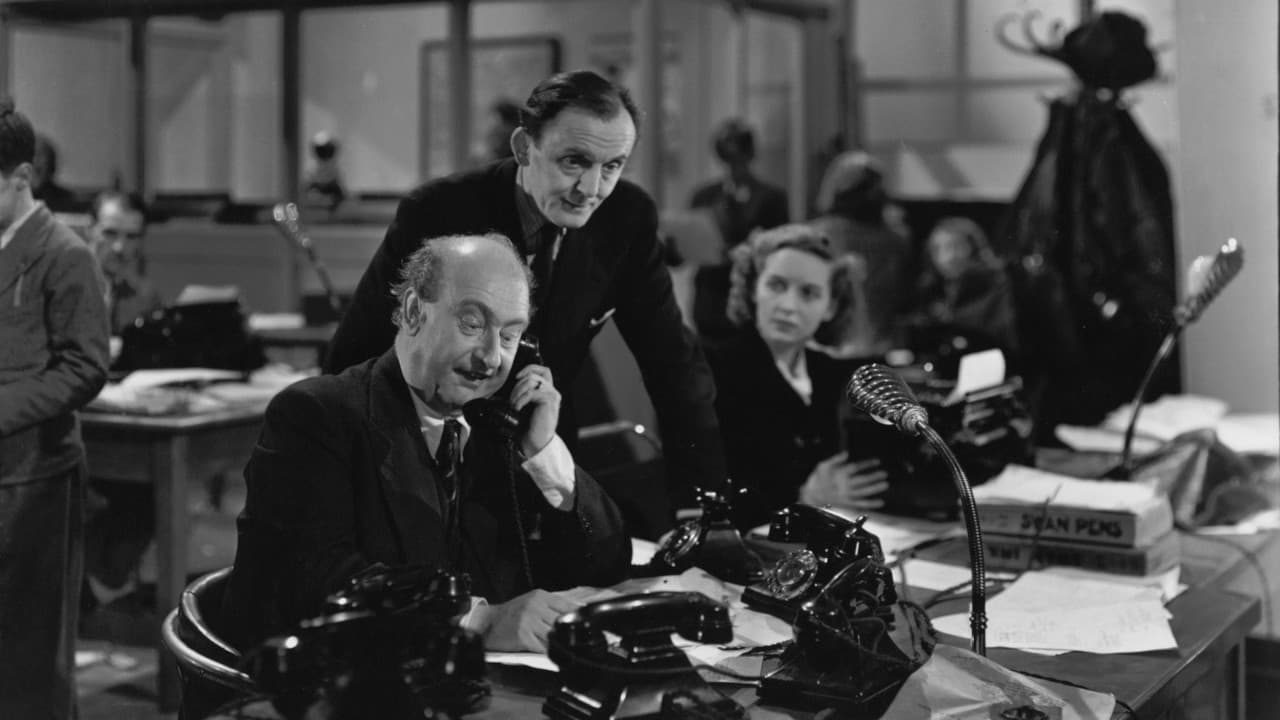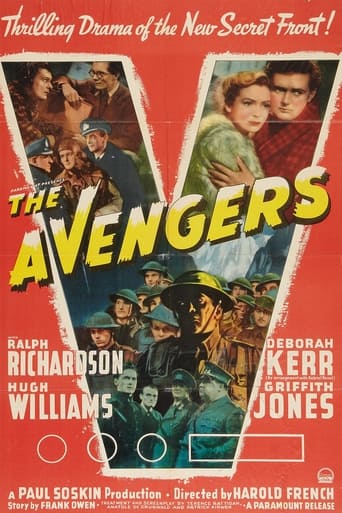Blucher
One of the worst movies I've ever seen
Keira Brennan
The movie is made so realistic it has a lot of that WoW feeling at the right moments and never tooo over the top. the suspense is done so well and the emotion is felt. Very well put together with the music and all.
Nicole
I enjoyed watching this film and would recommend other to give it a try , (as I am) but this movie, although enjoyable to watch due to the better than average acting fails to add anything new to its storyline that is all too familiar to these types of movies.
arthur_tafero
This early Deborah Kerr role steals the film, The Day Will Dawn, an early WW2 film about the invasion and occupation of Norway, a topic seldom seen in Hollywood films. English films tended to explore topics that Hollywood films avoided. In Hollywood, intellectual exploration was considered box office poison.
This movie, despite the hilarious nazi scene of a nazi officer killing a Norweigen traitor by shooting at the wall, is very effective for most of the film, and highlights Kerr's acting talents. The rest of the cast, particularly Kerr's father, do a very good job in the film. Some portrayals of the nazis border on cartoonish, but that is to be expected, considering the time period. A good WW actioner.
clanciai
We have seen this before, the freedom fighters of Norway under Nazi occupation, their hardship, their courage, their determination, their heroism and so on, and if this film at least is better than "The Moon Is Down" on the same theme, it's not up to Errol Flynn's "The Edge of Darkness". The one outstanding asset of this film though is the leading lady, a very young Deborah Kerr, who in a way sustains the whole movie. In the beginning she is just a very cheerful and happy Norwegian lass, but when the Germans come to build an oil refinery, which turns out to be a submarine base, the Norwegians get into trouble, and in order to save her father's life (Finlay Currie) Deborah has to marry the local Quisling, the local police, whom the Norwegians don't know at first that he is collaborating with the Germans (Francis L. Sullivan, awesome as usual.) When Hugh Williams as an English spy learns this on his second coming, he fell in love with Deborah during the first, he is not very happy.It's a very typical British edifying war film from the very darkest year 1942 and sides with many others of the same kind, outdated today, but still interesting for their great moral enthusiasm about surviving and fighting tyranny.
mark.waltz
As FDR said, "If anybody is unsure as to why this war is being fought, let them look to Norway". This British film came a year before Warner Brothers' "Edge of Darkness" ended with that paraphrased quote. That lavish drama with Errol Flynn took place in a coastal fishing village and covered pretty much the same topic as this, how the locals all got together and vowed to drive the Nazis out, no matter what the consequences or loss of life might be. The same thing happens here, except that it all starts with the arrival of the German U-Boats and shows how the British got involved with the resistance, assuring them with a "wait and see" attitude that the timing would ultimately wound the Nazis more than an all out attack before their defenses were down.Ralph Richardson is the British spy in the camp, assuring Norweigans that help is imminent. He falls for the lovely Deborah Kerr, the feisty daughter of a fisherman being held by the Nazis for making anti-German statements. She is forced to marry a "Quisling" (traitor) to save her father and as a result of her marriage becomes an outcast even though she is secretly working with several members of the resistance who know the truth. The other townspeople do everything in their power to make the Nazis lives miserable, humorously going out of their way with little annoyances. When a night raid leaves dozens of Germans dead, eight Norwegian men (along with Richardson and Kerr) are arrested and sentenced to be shot, but in the nick of time, a crowd pleasing (if improbable) finale leads to a hopeful ending where the usual propaganda machine narrative warns against the Nazis and also warns the Axis (for those of them who would actually see this film) that their days were numbered and that the day would dawn when freedom will ring again for German occupied countries.Films like this were a dime a dozen during World War II and most are at least enjoyable if not predictable in their narrative. The Nazis are presented fairly, only a few being genuinely evil, the others doing their duty as they've been ordered, a reminder that many of them too were either manipulated or forced by evil powers greater than themselves to follow a leader they feared too much to rebel against.
lorenellroy
This movie is markedly more propagandist in tone than most movies made in the UK about the war while it was still in progress.It more closely resembles the overtly patriotic US pictures from the same era such as Guadalcanal Diary or Back To Bataan .It does not neglect to pay a merited tribute to the Norwegian people for their resistance either.Hugh Williams plays Colin Metcalfe ,a London journalist sent by his paper to Norway , soon to be conquered by the Nazis .He falls in love with Kari Alstead (Deborah Kerr)the daughter of a local fisherman(Finlay Currie).He returns to London after a short posting to Norway where he witnesses a Nazi submarine in operation .He is sent back to the country by Naval Intelligence to help the Royal Navy pinpoint the exact location of the U-Boat base from which crippling attacks are being launched on allied vessels .In the time he was away Kari has been forced to enter into an engagement with the Quisling police chief Gunther(Griffith Moore)in order to protect her father from arrest by the local Nazi chief (Francis L Sullivan).He is able to engineer a raid which is in turn followed by brutal Nazi repression The movie gives a good picture of life under the jackboot and is well acted -although for all her talent Deborah Kerr is not ideal casting as a Norwegian fisherwoman .Ralph Richardson impresses as a journalist and Roland Culver is good as Naval Intelligence man Rousing and patriotic, the movie ends with a typically robust Churchillian sentiment that still stirs the blood and it is good to see British cinema indulging in patriotism rather than restraint for once

